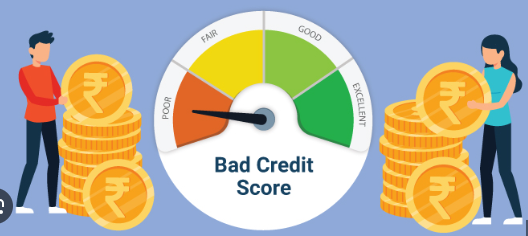Understanding Credit Report: Signs of Trouble and Solutions

In today’s financial landscape, maintaining a healthy credit report is paramount. Yet, many individuals find themselves unknowingly sliding into credit score problems, which can have significant repercussions on their financial well-being. Let’s delve into the warning signs and solutions for managing credit report issues effectively.
Firstly, late or missed payments pose a red flag for potential credit score problems. Regularly skipping payments on credit cards or loans can have detrimental effects on your creditworthiness. It’s crucial to address any payment delays promptly to avoid further damage to your credit score.
Secondly, maxing out credit cards is another warning sign to heed. Carrying high balances close to the credit limit can adversely impact your credit score. Experts recommend keeping credit card balances below 30% of the available credit limit to maintain a healthy credit utilization ratio.
Moreover, applying for multiple credit accounts within a short period can lower your credit score. Each application results in a hard inquiry on your credit report, temporarily decreasing your score. If you find yourself seeking credit frequently, it may indicate underlying financial difficulties that need attention.
Furthermore, closing old credit accounts can negatively affect your credit utilization ratio and average credit history age, both of which are vital factors in determining your credit score. It’s essential to evaluate the implications before closing any credit accounts.
Equally important is monitoring changes in interest rates and fees on credit cards. An increase in rates or additional fees may signal a decline in your credit score, prompting lenders to adjust terms based on perceived credit risk.
Addressing these warning signs promptly is crucial to mitigate potential damage to your credit score. Taking proactive steps such as creating a budget, prioritizing debt repayment, and seeking credit counseling can help improve your financial situation over time.
Frequently Asked Questions:
- If you frequently face credit card or loan denials, it indicates a lower credit score than anticipated. It’s essential to review your credit report and address any discrepancies or issues affecting your creditworthiness.
- Collection notices can significantly impact your credit score, making it challenging to obtain credit in the future. It’s crucial to address outstanding debts promptly and work towards resolving any collection accounts on your credit report.
- Improving your credit score requires diligence and discipline. Focus on making timely payments, reducing outstanding debt, and maintaining a healthy credit utilization ratio. Over time, these efforts can positively impact your creditworthiness.
- While a credit score below 700 may pose challenges in obtaining favorable loan terms, it’s still possible to qualify for a car loan. However, be prepared for higher interest rates or stricter loan conditions.
- Being a guarantor doesn’t directly impact your debt burden, but it does represent a potential liability. Lenders may consider the guaranteed amount when assessing your creditworthiness, so proceed with caution when agreeing to be a guarantor.
In conclusion, understanding the warning signs of credit report problems and taking proactive steps to address them is essential for maintaining financial stability. By staying informed and proactive, you can navigate potential credit challenges and work towards achieving your financial goals.




